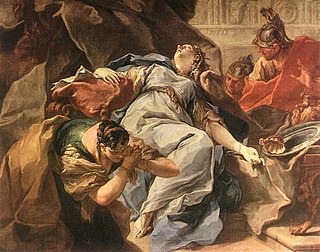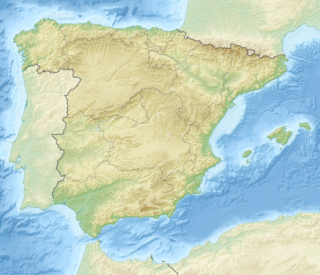| Millennium: | 1st millennium BC |
| Centuries: | |
| Decades: | |
| Years: | |
| Categories: |

This article concerns the 200 BC decade, that lasted from 209 BC to 200 BC.
| Millennium: | 1st millennium BC |
| Centuries: | |
| Decades: | |
| Years: | |
| Categories: |

This article concerns the 200 BC decade, that lasted from 209 BC to 200 BC.
== {{dr|y|y|{{1x|-}}{{{year}}}0|{{1x|-}}{{{1}}}|na}} == {{trim|{{transcluded section|{{dr|y|y|{{1x|-}}{{{year}}}0|{{1x|-}}{{{1}}}|na}}}} {{#section-h::{{dr|y|y|{{1x|-}}{{{year}}}0|{{1x|-}}{{{1}}}|na}}|Events}}}} == {{dr|y|y|{{1x|-}}{{{year}}}0|{{1x|-}}{{{1}}}|na}} == {{trim|{{transcluded section|{{dr|y|y|{{1x|-}}{{{year}}}0|{{1x|-}}{{{1}}}|na}}}} {{#section-h::{{dr|y|y|{{1x|-}}{{{year}}}0|{{1x|-}}{{{1}}}|na}}|Events}}}} == {{dr|y|y|{{1x|-}}{{{year}}}0|{{1x|-}}{{{1}}}|na}} == {{trim|{{transcluded section|{{dr|y|y|{{1x|-}}{{{year}}}0|{{1x|-}}{{{1}}}|na}}}} {{#section-h::{{dr|y|y|{{1x|-}}{{{year}}}0|{{1x|-}}{{{1}}}|na}}|Events}}}} == {{dr|y|y|{{1x|-}}{{{year}}}0|{{1x|-}}{{{1}}}|na}} == {{trim|{{transcluded section|{{dr|y|y|{{1x|-}}{{{year}}}0|{{1x|-}}{{{1}}}|na}}}} {{#section-h::{{dr|y|y|{{1x|-}}{{{year}}}0|{{1x|-}}{{{1}}}|na}}|Events}}}} == {{dr|y|y|{{1x|-}}{{{year}}}0|{{1x|-}}{{{1}}}|na}} == {{trim|{{transcluded section|{{dr|y|y|{{1x|-}}{{{year}}}0|{{1x|-}}{{{1}}}|na}}}} {{#section-h::{{dr|y|y|{{1x|-}}{{{year}}}0|{{1x|-}}{{{1}}}|na}}|Events}}}} == {{dr|y|y|{{1x|-}}{{{year}}}0|{{1x|-}}{{{1}}}|na}} == {{trim|{{transcluded section|{{dr|y|y|{{1x|-}}{{{year}}}0|{{1x|-}}{{{1}}}|na}}}} {{#section-h::{{dr|y|y|{{1x|-}}{{{year}}}0|{{1x|-}}{{{1}}}|na}}|Events}}}} == {{dr|y|y|{{1x|-}}{{{year}}}0|{{1x|-}}{{{1}}}|na}} == {{trim|{{transcluded section|{{dr|y|y|{{1x|-}}{{{year}}}0|{{1x|-}}{{{1}}}|na}}}} {{#section-h::{{dr|y|y|{{1x|-}}{{{year}}}0|{{1x|-}}{{{1}}}|na}}|Events}}}} == {{dr|y|y|{{1x|-}}{{{year}}}0|{{1x|-}}{{{1}}}|na}} == {{trim|{{transcluded section|{{dr|y|y|{{1x|-}}{{{year}}}0|{{1x|-}}{{{1}}}|na}}}} {{#section-h::{{dr|y|y|{{1x|-}}{{{year}}}0|{{1x|-}}{{{1}}}|na}}|Events}}}} == {{dr|y|y|{{1x|-}}{{{year}}}0|{{1x|-}}{{{1}}}|na}} == {{trim|{{transcluded section|{{dr|y|y|{{1x|-}}{{{year}}}0|{{1x|-}}{{{1}}}|na}}}} {{#section-h::{{dr|y|y|{{1x|-}}{{{year}}}0|{{1x|-}}{{{1}}}|na}}|Events}}}}
== {{ucfirst:{{{1}}}}} == {{preprocess|{{((}}transcluding articles {{!}} {{for loop|{{!}}|call=Year article|pc1n=1|pc1v={{{decade}}}0|pv=2|-9|-8|-7|-6|-5|-4|-3|-2|-1}} {{!}} {{#ifeq:{{{decade}}}|-0|{{void|There is no BC year 0}}|{{Year article|{{{decade}}}0}}}} {{))}}}} {{for loop| |call=Transclude {{{1}}}|{{{decade}}}9|{{{decade}}}8|{{{decade}}}7|{{{decade}}}6|{{{decade}}}5|{{{decade}}}4|{{{decade}}}3|{{{decade}}}2|{{{decade}}}1}} {{#ifeq:{{{decade}}}|-0|{{void|There is no BC year 0}}| {{Transclude {{{1}}}|{{{decade}}}0}} }} == {{ucfirst:{{{1}}}}} == {{preprocess|{{((}}transcluding articles {{!}} {{for loop|{{!}}|call=Year article|pc1n=1|pc1v={{{decade}}}0|pv=2|-9|-8|-7|-6|-5|-4|-3|-2|-1}} {{!}} {{#ifeq:{{{decade}}}|-0|{{void|There is no BC year 0}}|{{Year article|{{{decade}}}0}}}} {{))}}}} {{for loop| |call=Transclude {{{1}}}|{{{decade}}}9|{{{decade}}}8|{{{decade}}}7|{{{decade}}}6|{{{decade}}}5|{{{decade}}}4|{{{decade}}}3|{{{decade}}}2|{{{decade}}}1}} {{#ifeq:{{{decade}}}|-0|{{void|There is no BC year 0}}| {{Transclude {{{1}}}|{{{decade}}}0}} }}

The 3rd century BC started the first day of 300 BC and ended the last day of 201 BC. It is considered part of the Classical era, epoch, or historical period.
Year 202 BC was a year of the pre-Julian Roman calendar. At the time it was known as the Year of the Consulship of Geminus and Nero. The denomination 202 BC for this year has been used since the early medieval period, when the Anno Domini calendar era became the prevalent method in Europe for naming years.
This article concerns the period 219 BC – 210 BC.
Year 204 BC was a year of the pre-Julian Roman calendar. At the time it was known as the Year of the Consulship of Cethegus and Tuditanus. The denomination 204 BC for this year has been used since the early medieval period, when the Anno Domini calendar era became the prevalent method in Europe for naming years.
Year 203 BC was a year of the pre-Julian Roman calendar. At the time it was known as the Year of the Consulship of Caepio and Geminus. The denomination 203 BC for this year has been used since the early medieval period, when the Anno Domini calendar era became the prevalent method in Europe for naming years.
Year 206 BC was a year of the pre-Julian Roman calendar. At the time it was known as the Year of the Consulship of Philo and Metellus. The denomination 206 BC for this year has been used since the early medieval period, when the Anno Domini calendar era became the prevalent method in Europe for naming years.
Year 208 BC was a year of the pre-Julian Roman calendar. At the time it was known as the Year of the Consulship of Marcellus and Crispinus. The denomination 208 BC for this year has been used since the early medieval period, when the Anno Domini calendar era became the prevalent method in Europe for naming years.
Gnaeus Cornelius Scipio Calvus was a Roman general and statesman during the third century BC. He played a major part in the Second Punic War establishing Roman Rule in the east of the Iberian Peninsula and tying up several Carthaginian armies keeping them from reinforcing Hannibal.
Mago Barca, was a Barcid Carthaginian who played an important role in the Second Punic War, leading forces of Carthage against the Roman Republic in Iberia and northern and central Italy. Mago was the third son of Hamilcar Barca, was the brother of Hannibal and Hasdrubal, and was the brother-in-law of Hasdrubal the Fair.

Syphax was a king of the Masaesyli tribe of western Numidia during the last quarter of the 3rd century BC. His story is told in Livy's Ab Urbe Condita.

Hasdrubal Barca, a latinization of ʿAzrubaʿal son of Hamilcar Barca, was a Carthaginian general in the Second Punic War. He was the brother of Hannibal and Mago Barca.

Sophonisba was a Carthaginian noblewoman who lived during the Second Punic War, and the daughter of Hasdrubal Gisco. She held influence over the Numidian political landscape, convincing king Syphax to change sides during the war, and later, in an act that became legendary, she poisoned herself rather than be humiliated in a Roman triumph.

The Numidians were the Berber population of Numidia. The Numidians were one of the earliest Berber tribes to trade with Carthaginian settlers. As Carthage grew, the relationship with the Numidians blossomed. Carthage's military used the Numidian cavalry as mercenaries. Numidia provided some of the highest quality cavalry of the Second Punic War, and the Numidian cavalry played a key role in several battles, both early on in support of Hannibal and later in the war after switching allegiance to the Roman Republic.

The Battle of the Upper Baetis was a double battle, comprising the battles of Castulo and Ilorca, fought in 211 BC during the Second Punic War between a Carthaginian force led by Hasdrubal Barca and a Roman force led by Publius Cornelius Scipio and his brother Gnaeus. The immediate result was a Carthaginian victory in which both Roman brothers were killed. Before this defeat, the brothers had spent seven years campaigning in Hispania, which had limited the resources available to Hannibal, who was simultaneously fighting the Romans in Italy.
Hasdrubal Gisco, a latinization of the name ʿAzrubaʿal son of Gersakkun, was a Carthaginian general who fought against Rome in Iberia (Hispania) and North Africa during the Second Punic War.

The Battle of the Great Plains, also known as the Battle of the Bagrades or the First Battle of the Bagradas, was a battle between a Roman army commanded by Scipio Africanus and a combined Carthaginian-Numidian army late in the Second Punic War. It was fought on the plains south of Bulla Regia around the upper Bagradas River. The African campaign of Scipio was designed as a diversionary tactic by Rome to disrupt Hannibal's attack on Italy. By defeating the Carthaginians, Scipio Africanus caused Hannibal to leave Italy and return to Africa, where he was later defeated at Zama.

The Battle of Utica was fought in 203 BC between armies of Rome and Carthage during the Second Punic War. Through a surprise attack, the Roman commander Scipio Africanus managed to destroy a numerous force of Carthaginians and their Numidian allies not far from the outflow of the Medjerda River in modern Tunisia. Thus he gained a decisive strategic advantage, switched the focus of the war from Italy and Iberia to Carthaginian north Africa, and contributed largely to the final Roman victory.

Publius Cornelius Scipio Africanus was a Roman general and statesman, most notable as one of the main architects of Rome's victory against Carthage in the Second Punic War. Often regarded as one of the best military commanders and strategists of all time, his greatest military achievement was the defeat of Hannibal at the Battle of Zama in 202 BC. This victory in Africa earned him the surname Africanus.

Masinissa, also spelled Massinissa, Massena and Massan, was an ancient Numidian king best known for leading a federation of Massylii Berber tribes during the Second Punic War, ultimately uniting them into a kingdom that became a major regional power in North Africa.